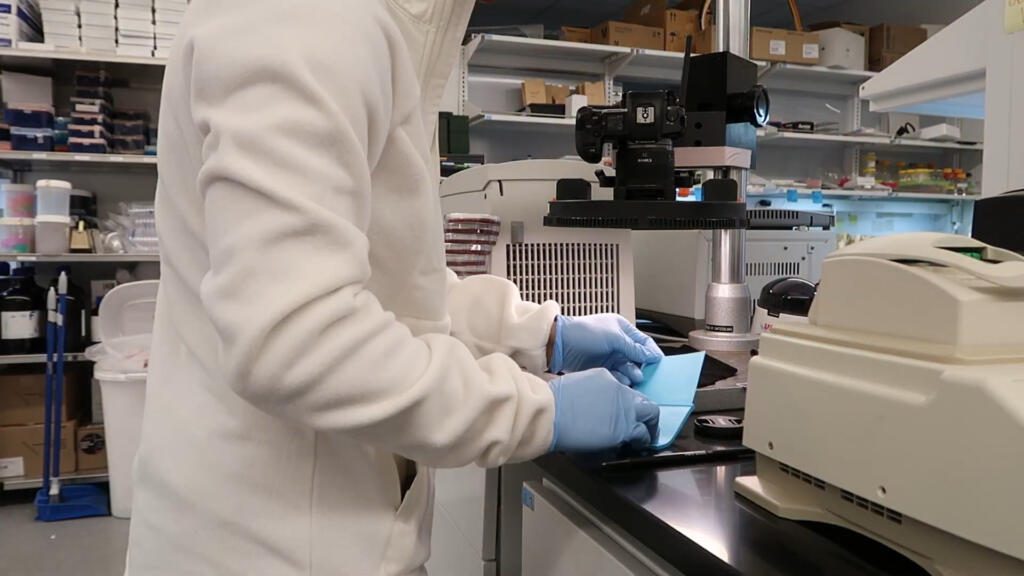Is Biomedical Engineering Hard?
Engineering is such a broad subject that it has so many subcategories. Some of the subcategories of engineering are difficult as compared to others; among them, the hardest subjects include aerospace engineering, biomedical engineering, electrical engineering, and chemical engineering. If you have an interest in engineering and are looking to select biomedical engineering as your major in your higher studies, you must be confused about whether it is hard or not.
Well, yes, biomedical engineering is quite hard because it involves the study of the two toughest subjects, that is, medical and engineering. We will guide you here in this article about biomedical engineering and its relevant concepts so you can decide whether you should finalize biomedical engineering as your major or not. We will first start with what biomedical engineering is and then will look at the details of why it is considered hard.

Is biomedical engineering hard? Can I do it? Will I get success if I study biomedical engineering? These are some of the common questions that linger in the minds of those who have an interest in biomedical engineering.
Well, yes, biomedical engineering is quite hard because it includes the study of two of the most challenging fields, that is engineering and medicine. Let us look at what biomedical engineering is, what you have to study in it, and how hard it is.
What Is Biomedical Engineering?

Biomedical engineering is the study of two of the major fields: medicine and engineering. It is a multidisciplinary field. Since we study biology and engineering, both in biomedical engineering, it becomes quite difficult for most of the students.
Moreover, biomedical engineering is a multidisciplinary subject that involves the use of engineering principles for creating products that assist in medical services and providing general healthcare. Well, the most notable and professional contributions of biomedical engineering in the field of medical science is the development of artificial organs, surgical robots, advanced prosthetics, and life-saving machines. No doubt, biomedical engineering is a diverse field that has numerous subcategories and choices for you to specialize in.
What You Have To Study In Biomedical Engineering?
To study biomedical engineering, you must have to go through studies in medicine and engineering. In biomedical engineering, you have to study biology, chemistry, physics, and math. Then there are subjects like biomolecular engineering, biomechanics, tissue engineering, and regenerative medicine that you also have to study to complete the course of biomedical engineering.
Since biomedical engineering revolves around medicine, the human body, biological concepts, and engineering you have to study everything related to biology and engineering. Furthermore, this field also focuses on both macroscopic and molecular aspects of biomedical engineering. This includes design and metabolism, biomaterials, medical, biomechanics, biomedical instrumentation, drug delivery, and system biology.
Is Biomedical Engineering Hard?
Studying biomedical engineering becomes quite difficult because you have to study not only complex and advanced math but also have to be proficient in biology and lab work. You have to combine both medical theories with engineering principles to sort out the problems and create solutions.
Well, if you have an interest in the subject, then no subject is hard for you, but still studying biomedical engineering involves lots of effort and practice. Because the study involves the focus on two major fields of study: biology, and engineering, it becomes harder for most of the students to cope.
And when it comes to medicines and the human body, every human body is different and reacts uniquely. Similarly, when it comes to engineering, you have to follow some specific rules, formulas, and computational steps to sort out the problems related to human life. And when both of these combine, it demands lots of practice, lots of focus, attention, and course advanced knowledge to excel in the field.
What Must-Have Skills You Should Have To Study Biomedical Engineering?

Biomedical engineers are the minds that develop and design medical instruments and devices, mainly artificial organs, limb implantation products, and other healthcare technological items. There are some of the must-have skills to study biomedical engineering that are mentioned as follows.
You have to make sure that you have these skills if you are looking to select biomedical engineering as your profession.
- You must have to be experienced in using computer modeling software.
- You must know how to focus and key attention to the precise details for accurate measurements.
- You should have problem-solving skills and should know how to focus on one point.
- You should have a solution-focused mind so that you can opt for the solutions to the problems that you encounter in your research and other lab work.
- Moreover, you should also have technical and creative ability so that you can convert your abstract designs into physical products that can be used in the medical field for the betterment of human life.
- You should have excellent and outstanding oral and verbal communication skills so that you can convey your part to other team members.
- Furthermore, keep in mind you must be skilled enough to work in a team because you will be working in a multi-disciplinary team and you should know how to work and deal with other team members.
Good GPA For Biomedical Engineers
GPA that is considered good for biomedical engineers is 3.5 or above. Make sure you have most As and Bs in your subjects so that combinedly they make a 3.5 or above CGPA. Moreover, a 3.3 to 3.5 CGPA is the minimum limit for getting into internships and starting your first job as a fresher.
Future Of Biomedical Engineers
Biomedical engineers typically have a bright future because biomedical engineering revolves around the medical sciences and engineering fields. Over time, the advancement in the medical field is ultimately resulted in more demand for biomedical engineers.
There are several job opportunities in various centers for biomedical engineers including research centers, medical institutions, hospitals, clinics, and mainly the lab. Biomedical engineers can work in medical labs to design equipment like artificial organs and body parts.
They are also responsible for providing technical support in the manufacturing of biomedical equipment. They can also repair and adjust various biomedical equipment.
What Is The Scenario Of Jobs In The US Market For Biomedical Engineers?
With advancements in technology and the medical field and a relationship between the two there are lots of jobs in the US market right now for biomedical engineers. The US market is offering lots of job opportunities in medical institutes, mainly in their research laboratories.
Moreover, because biomedical engineers play an important role in the development of medical technology and in helping humanity, there are lots of job opportunities in the US market. Moreover, you also have the choice of jobs as a biomedical engineer in the field of neuroscience and clinical research.
There are around 21300 biomedical engineers in the US currently working. This job market is expected to grow by 10% from 2021 to 2031.
Average Salary Of A Biomedical Engineer
US
The average salary of a biomedical engineer in the United States revolves around $ 87000 per year. The United States is considered the top country when it comes to paying high salaries for biomedical engineers.
Canada
The average salary of a biomedical engineer who is working in Canada is between $70,000 to $125000 per year.
Pakistan
Biomedical engineering Pakistan can earn between PKR 400000 per year to PKR 1200000 per year. It is one of the best fields in Pakistan that has a good scope, from which you can earn a lot.
France
Those biomedical engineers who are working in France can make an average salary that ranges between 48000 euros to 86000 euros.
Top Biomedical Engineering Colleges
- Technical University of Munich
- University College Dublin
- University of Glasgow
- Queen Mary University of London
- University of Surrey
- University of Sheffield
- Nanyang Technological University
- University of Warwick
- University of East London
- The University of Liverpool
Do biomedical engineers have a future?
Yes, biomedical engineers have a bright future because they play an important role in the development of medical technology that will be helpful in the betterment of human healthcare. Moreover, biomedical engineers also play an important role in inventions and discoveries for the benefit of the human being.
Is studying medical engineering worthwhile in Pakistan?
Yes, a biomedical engineering degree has a great scope in Pakistan. It offers comfortable salaries and is high in demand. Several biomedical engineering companies need engineers for their technological works that involve the creation of surgical robots, pharmaceutical drugs, and micro-implants.
Is biomedical engineering hard or easy?
It depends on you and what you have studied before selecting biomedical engineering as your major in higher education. If you have concepts of medical science and engineering both and have a strong base in this field, you will like biomedical engineering and it would be easier for you.
What do you study in biomedical engineering?
To study biomedical engineering, you have to study medical sciences, biology, and engineering, all 3 subjects at once. You have to gain knowledge in technology and science because biomedical engineering involves clinical inventions that will be helpful for human life.
Hopefully, you have gone through the above-mentioned article that tells you about whether biomedical engineering is hard or not and what you have to study in this field. Make sure to put your attention to the key details that are written above before finalizing it as your major as the information above will help you in picking the right subject.
